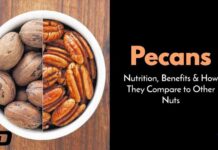
A recent report from the University of Michigan National Poll on Healthy Aging reveals that 44% of American adults aged 50-80 show at least one symptom of addiction to highly processed foods.
About 1 in 8 adults (13%) met the full criteria for addiction to highly processed food.
What is Highly Processed Food?
“Highly processed food” means that it has undergone various chemical and mechanical processes to improve its flavor, texture, and shelf life. These foods are often high in added sugars, salt, and fat and low in essential nutrients.
Common examples of highly processed foods include:
- candy
- soda
- fast food
- packaged snacks
- store-bought pastries
- frozen meals
Addiction to Highly Processed Foods
A food addiction can manifest in various ways, including intense cravings, inability to cut down intake, and signs of withdrawal. According to this recent survey, women were twice as likely as men to meet the criteria for addiction, with women aged 50-64 being the most likely.
Adults who rated their physical or mental health as fair or poor were more likely to meet addiction criteria. The report also found that those who felt isolated from others were more likely to be addicted to highly processed food.
Highly Processed Food and Eating Disorders
Highly processed foods are made to be hyper-palatable, meaning they have an intense flavor profile that is designed to be appealing and addictive.
Research suggests that highly processed foods can activate the same reward centers in the brain as drugs of abuse, leading to compulsive eating behavior and cravings.
Another factor that may contribute to food addiction is the impact of highly processed food on the gut microbiome. Emerging research has shown that a diet high in highly processed foods can alter the composition of the gut microbiome, leading to dysbiosis, or an imbalance of gut bacteria. Dysbiosis can lead to inflammation, which is linked to a variety of chronic diseases, including obesity, diabetes, and heart disease.
It’s possible that the gut-brain axis may play a role in food addiction, as the gut microbiome can communicate with the brain through the vagus nerve, influencing mood, appetite, and behavior.
Helpful Tips For Eating Better
Here are some tips to help you improve your relationship with food:
- Practice mindful eating: Pay attention to the flavors, smells, and textures of the food you are eating. Eat slowly, savoring each bite.
- Cook more at home: Preparing meals at home allows you to control the quality and quantity of the ingredients you use.
- Increase your intake of whole, nutrient-dense foods: Whole foods such as fruits, vegetables, whole grains, and lean proteins provide essential nutrients that highly processed foods lack.
- Practice healthier forms of stress relief: Bad habits are often interconnected with your stress levels. You may use these excessively palatable foods to cope with other issues in your life. Practices such as mindfulness, exercise, journaling, and creative art can reduce your stress levels and make it easier to avoid unhealthy temptations.
- Seek support: Join a support group, see a therapist or registered dietitian who specializes in eating disorders, or talk to a trusted friend or family member about your struggles.
Addiction to highly processed food is a serious issue that affects many Americans. This addiction can have severe consequences on your physical and mental health, which is why it is important to acknowledge the problem and start taking steps to improve your relationship with food.


















